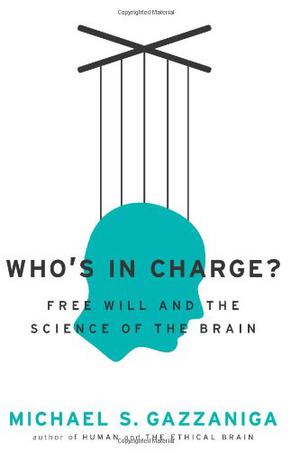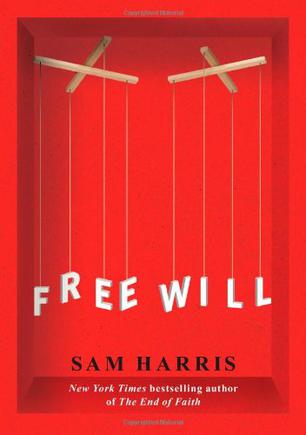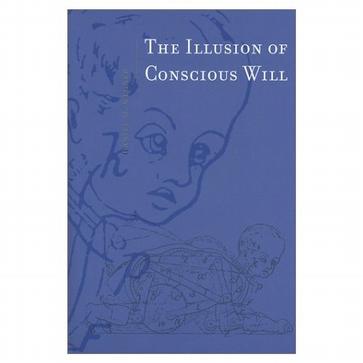-

Who's in Charge?
-

A Contemporary Introduction to Free Will
Accessible to students with no background in the subject, A Contemporary Introduction to Free Will provides an extensive and up-to-date overview of all the latest views on this central problem of philosophy. Opening with a concise introduction to the history of the problem of free will--and its place in the history of philosophy--the book then turns to contemporary debates and theories about free will, determinism, and related subjects like moral responsibility, coercion, compulsion, autonomy, agency, rationality, freedom, and more. Classical compatibilist and new compatibilist theories of free will are considered along with the latest incompatibilist or libertarian theories and the most recent skeptical challenges to free will. Separate chapters are devoted to the relation of free will to moral responsibility and ethics; to modern science; and to religious questions about predestination, divine foreknowledge, and human freedom. Numerous down-to-earth examples and challenging thought experiments enliven the text. The book is an ideal addition to introduction to philosophy, metaphysics, and free will courses. -

Elbow Room
Anyone who has wondered if free will is just an illusion or has asked 'could I have chosen otherwise?' after performing some rash deed will find this book an absorbing discussion of an endlessly fascinating subject. Daniel Dennett, whose previous books include Brainstorms and (with Douglas Hofstadter) The Mind's I, tackles the free will problem in a highly original and witty manner, drawing on the theories and concepts of several fields usually ignored by philosophers; not just physics and evolutionary biology, but engineering, automata theory, and artificial intelligence.In Elbow Room, Dennett shows how the classical formulations of the problem in philosophy depend on misuses of imagination, and he disentangles the philosophical problems of real interest from the "family of anxieties' they get enmeshed in - imaginary agents, bogeymen, and dire prospects that seem to threaten our freedom. Putting sociobiology in its rightful place, he concludes that we can have free will and science too.Elbow Room begins by showing how we can be "moved by reasons" without being exempt from physical causation. It goes on to analyze concepts of control and self-control-concepts often skimped by philosophers but which are central to the questions of free will and determinism. A chapter on "self-made selves" discusses the idea of self or agent to see how it can be kept from disappearing under the onslaught of science. Dennett then sees what can be made of the notion of acting under the idea of freedomdoes the elbow room we think we have really exist? What is an opportunity, and how can anything in our futures be "up to us"? He investigates the meaning of "can" and "could have done otherwise," and asks why we want free will in the first place.We are wise, Dennett notes, to want free will, but that in itself raises a host of questions about responsibility. In a final chapter, he takes up the problem of how anyone can ever be guilty, and what the rationale is for holding people responsible and even, on occasion, punishing them.Daniel C. Dennett is Professor of Philosophy at Tufts University. Elbow Room is an expanded version of the John Locke Lectures which he gave at Oxford University in 1983.A Bradford Book. -

Free Will
The physiologist Benjamin Libet famously demonstrated that activity in the brain's motor regions can be detected some 300 milliseconds before a person feels that he has decided to move. Another lab recently used fMRI data to show that some "conscious" decisions can be predicted up to 10 seconds before they enter awareness (long before the preparatory motor activity detected by Libet). Clearly, findings of this kind are difficult to reconcile with the sense that one is the conscious source of one's actions. The question of free will is no mere curio of philosophy seminars. A belief in free will underwrites both the religious notion of "sin" and our enduring commitment to retributive justice. The Supreme Court has called free will a "universal and persistent" foundation for our system of law. Any scientific developments that threatened our notion of free will would seem to put the ethics of punishing people for their bad behaviour in question.In Free Will Harris debates these ideas and asks whether or not, given what brain science is telling us, we actually have free will? -

发现自由意志与个人责任
本书试图解释人的自由意志是怎样形成的,以及每个人在日常行为中为表达某种意图而承担的资任。作者希望读者能从本书中认识到人类的一种天性――人是有能力实践通常所说的那种“自由意志”的,进而能深刻地理解“人类意味着什么”。 -

The Illusion of Conscious Will
Do we consciously cause our actions, or do they happen to us? Philosophers, psychologists, neuroscientists, theologians, and lawyers have long debated the existence of free will versus determinism. In this book Daniel Wegner offers a novel understanding of the issue. Like actions, he argues, the feeling of conscious will is created by the mind and brain. Yet if psychological and neural mechanisms are responsible for all human behavior, how could we have conscious will? The feeling of conscious will, Wegner shows, helps us to appreciate and remember our authorship of the things our minds and bodies do. Yes, we feel that we consciously will our actions, Wegner says, but at the same time, our actions happen to us. Although conscious will is an illusion, it serves as a guide to understanding ourselves and to developing a sense of responsibility and morality. Approaching conscious will as a topic of psychological study, Wegner examines the issue from a variety of angles. He looks at illusions of the will—-those cases where people feel that they are willing an act that they are not doing or, conversely, are not willing an act that they in fact are doing. He explores conscious will in hypnosis, Ouija board spelling, automatic writing, and facilitated communication, as well as in such phenomena as spirit possession, dissociative identity disorder, and trance channeling. The result is a book that sidesteps endless debates to focus, more fruitfully, on the impact on our lives of the illusion of conscious will.